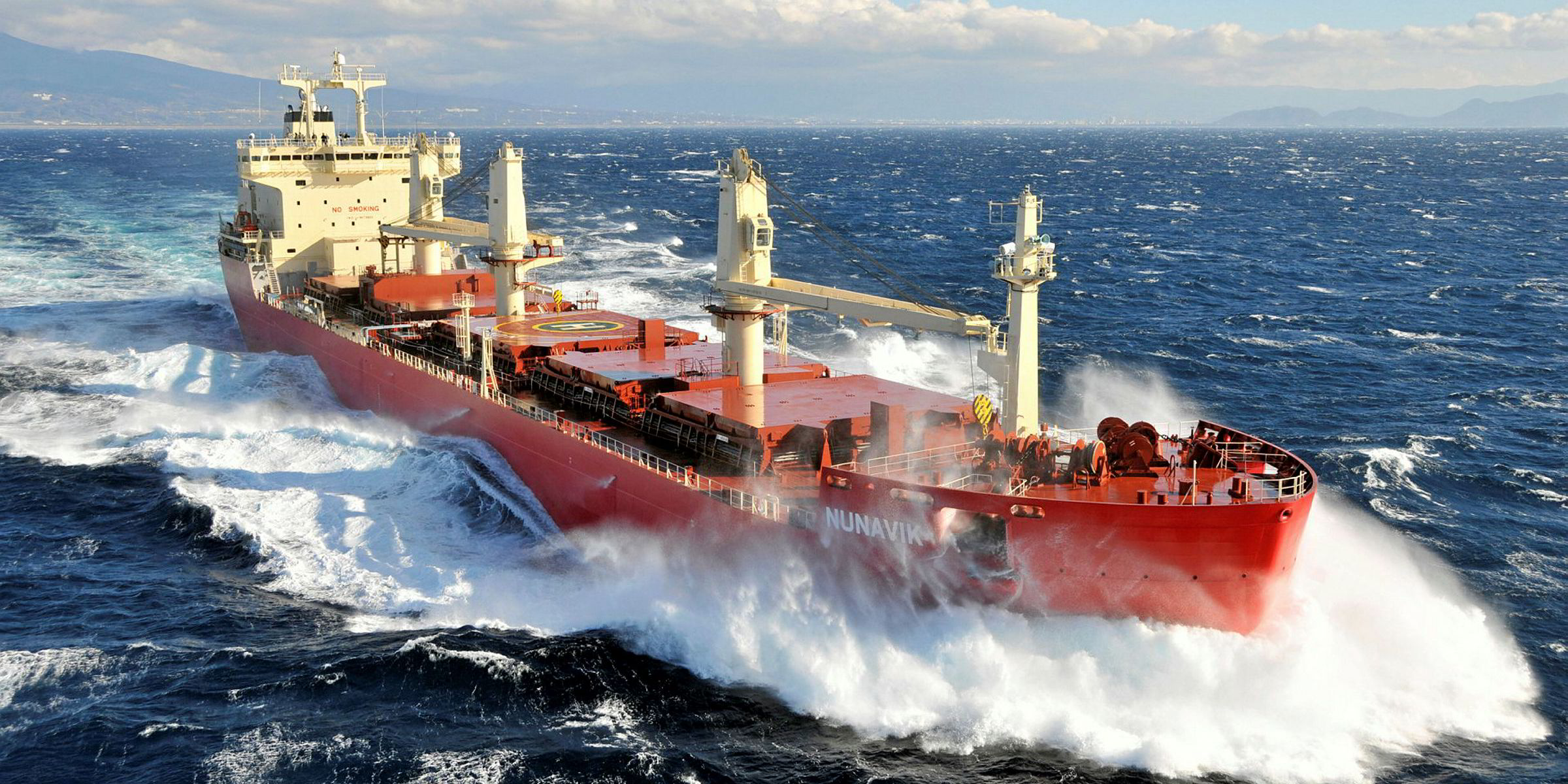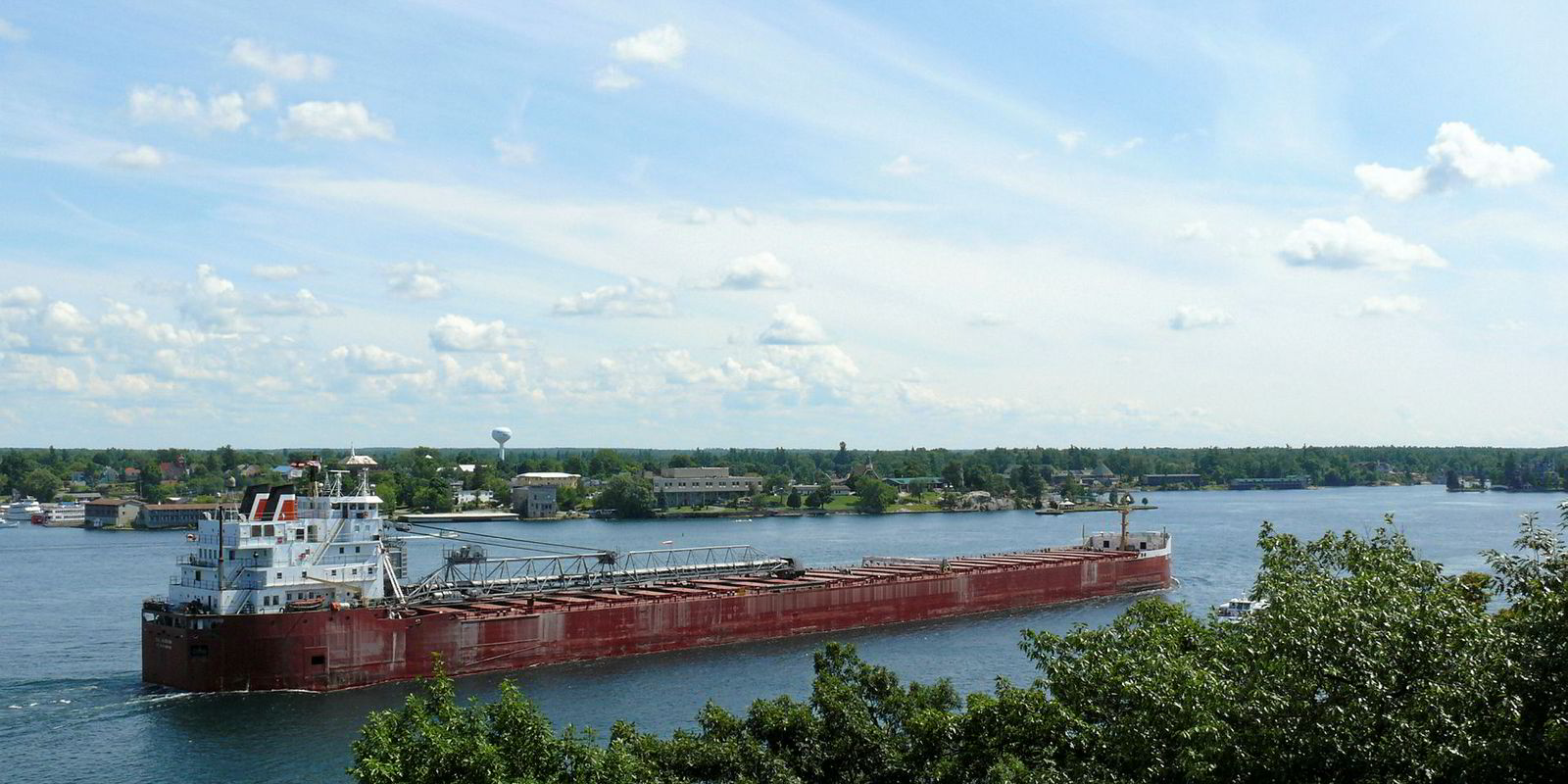The Canadian Marine Pilots' Association (CMPA) says the costs of pilotage for the largest vessels that can transit the Saint Lawrence Seaway system are a fraction of what shipowners face in other parts of the world.
In its submission to Marc Gregoire's Pilotage Act review, the CMPA says: “When compared to other jurisdictions — in particular, locations in the US with which Canadian pilots compete for cargo — Canadian pilotage tariffs are low.”
The association claims that tariffs charged by the country’s four regional pilotage authorities “are among the lowest in the world” and in absolute terms account for about 2% of overall operating costs for shipping lines.
And in a cost comparison for a 22,746-gt bulker, the figures submitted to Gregoire say those charges for Quebec, Montreal, Thunder Bay and Vancouver range from CAD 30 ($23.70, at today's rates) to CAD 50 per nautical mile compared with Hamburg at CAD 76, Philadelphia at CAD 115, Hong Kong at CAD 170, San Francisco at CAD 283, Amsterdam at CAD 509 and Long Beach at CAD 805.
The CMPA, which represents Canadian pilots but is not involved in contract negotiations, says the total revenue of the country’s pilotage authorities in 2016 was CAD 218m. It quotes a cost-benefit study, prepared by Transportation Economics and Management Systems, of pilotage services in Canada that identified benefits of CAD 4.56bn per year, including safety benefits of almost CAD 4bn.
The association says the shipping industry's claims that pilotage costs affect the competitiveness of Canada’s transportation system are "false". It accuses the industry of seeking to “diminish pilotage requirements and costs to improve its bottom line”.
It adds: “But changes to pilotage requirements cannot be profit driven; they must serve the higher purpose of safety and public interest.
“Despite the compulsory nature of Canada’s pilotage regime, Canadian shipping companies can avoid having to board pilots [on domestic-flag ships] and can, thereby entirely exempt themselves from pilotage charges, by taking advantage of the provisions regarding pilotage certificates in the Pilotage Act.”
It claims Canadian requirements for those certificates “tend to be less onerous for domestic operators than in many European jurisdictions”.
The CMPA also takes aim at industry criticism that pilotage charges have increased faster in recent years than the consumer price index (CPI). The line of reasoning does not reflect that pilotage charges are directly influenced by vessel size, the “tremendous increase” of which has hugely benefited shipowners and others, it says.
For example, the average size of vessel has grown 45% on the route between Quebec City and Montreal over the past 10 years, says the CMPA.
“The apparent increase in the cost of pilotage above the CPI actually masks a significant cost-saving and productivity gain that has accrued to shipowners as a result of lower pilotage costs when measured by size of vessel,” says the association.
The CMPA quotes a Canada Transportation Act review panel's findings that in 2014 total pilotage costs amounted to CAD 208m, or roughly 99 cents per CAD 1,000 of the value of international seaborne trade.
It asserts that the pilotage system is “working well but modernisation is necessary as the last set of substantive amendments were made to the Pilotage Act almost 20 years ago”.
“Pilots are pragmatic," the CMPA says. "They effectively deal with tangible situations 24/7, 365 [days a year] for the benefit of the communities they live in and serve, knowing that virtually all Canadians would be impacted in one way or another by a major maritime accident.”





